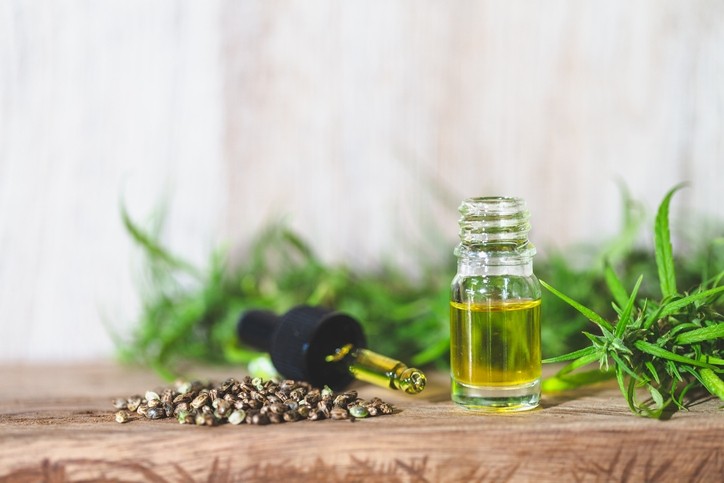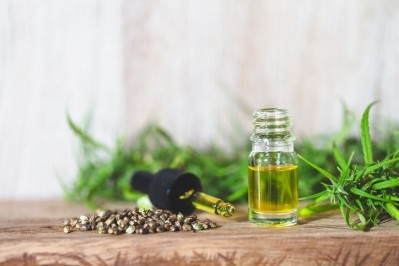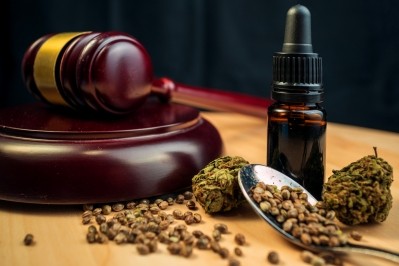“This mess is set to roll”: CBD novel foods deadline just the beginning

NutraIngredients reported earlier this month that the FSA changed the wording on its CBD novel foods deadline so it now states companies have to have submitted applications by March 31st, not that applications have to be validated by this date.
Previously the FSA had said companies would need to have their dossiers submitted by mid-February in order to be approved by March 31st but after they received a horde of applications way beyond this time, they changed their guidance to make space for the last minute arrivals.
As such, there will now be more than one list published by the FSA in April in order to inform which companies' novel foods applications have been validated. One list will show companies with validated applications and the other (which will be regularly updated) will show companies which have made some sort of application “but have not yet fully met the legal requirements to be validated but have set out sufficiently robust plans to prove they are fully committed to delivering the remaining information required”.
Stephen Oliver, co-founder of The Canna Consultants, says this change of wording is completely unsurprising, in fact his consultancy did predict this deadline would need to be adjusted last summer, but he is particularly concerned by this double list scenario.
He says it will almost definitely lead to even more last minute and inadequate applications from companies that won’t have the resources or inclination to follow up with the detailed data that will be ultimately required for authorisation, but who wish to remain on the market for as long as possible.
“The problem is that retailers and local authorities are likely to use these lists as a trusted source for deciding which products to allow to remain on shelves.
"This ‘not quite there yet’ list, which one assumes encompasses a very broad spectrum, essentially could provide a loophole for dodgy companies."
He also suggests the FSA will surely need to publish another list to specify which products have been on the market pre-February 13th 2020 as it has said only products that were on sale at that time will be allowed to remain on sale from 1 April 2021.
"The situation of two lists, or however many there ends up being, means essentially that an as yet un-validated company who’s products were on the market in February 2020 could remain on the market whereas a validated company that was not, cannot; where is the sense in that?”
He says there will be tens if not hundreds of last minute, ill thought-through applications.
“We’ve been getting about three calls a day from companies who have realised they haven’t done what they need to do in order to be validated but are desperate to get an application in before the deadline.
“We are encouraging those companies to wait and see what manufacturers are validated and choose a manufacturer which can provide them with their full toxicology data and who can also help them to produce their own data on their finished product. If you are not on the market now or were not pre-February 2020 there is no point chasing rainbows when a robust dossier will, in time, achieve the validation you seek."
Just the beginning
The FSA says applications are subject to an eight-day admin check, and it can then take up to 30 working days for an application to be validated.
Oliver says companies with validated applications are only at the beginning of the road as they still have a long and expensive road ahead of them in order to gain full authorisation.
“This mess is set to roll. To have your application validated essentially just means you’ve passed an academic assessment of the quality of the dossier. If companies thought it was hard getting their novel foods dossier prepared, that’s just the start.
“The FSA will pass these applications to the ACNFP who will do detailed risk assessments and may come back to the companies asking for independent validated tests to prove their results are sound. Along with requests for further data relied upon or referred to within the submitted dossier.
“If they are promising a two-year shelf life, they will need to prove the same results, or relatively similar, after two years with respect to what the Cannabinoid profile is. If there are concerns by the ACNFP over issues such as long-term effects, they will be asked to provide data on long term effects. Then there is the issue of Cannabinoid degradation as well as food safety and stability and these things take time.
“This is why we’re recommending our clients don’t go too complicated with their formulations – adding lots of botanicals and other active ingredients – because these will just throw up additional questions that need to be answered – all at a cost to the companies themselves.”
In response to Oliver's concerns, the FSA told NutraIngredients: "As mentioned in our latest update, as well as publishing a list of CBD products linked to validated applications, we will also publish a list of products associated with applications which have not yet fully met the legal requirements to be validated but have set out sufficiently robust plans to prove they are fully committed to delivering the remaining information required. To meet this criteria, businesses will need to include evidence of plans to complete the risk assessment process, with a clear deadline for submission of the outstanding information.
"For both categories (validated and pending validation) applications need to have been submitted by 31 March 2021 and show evidence that the CBD products were on the market before 13 February 2020."








